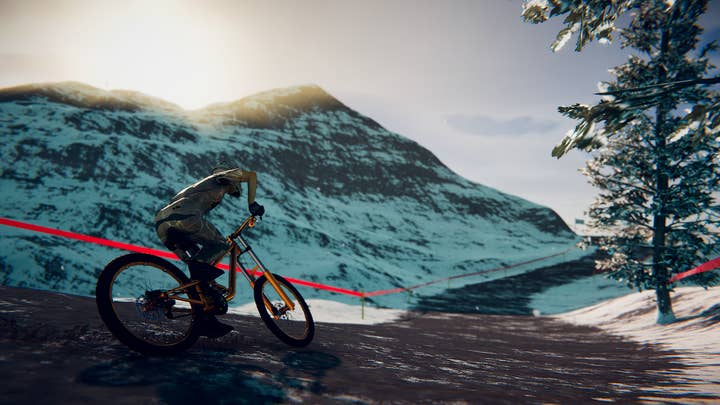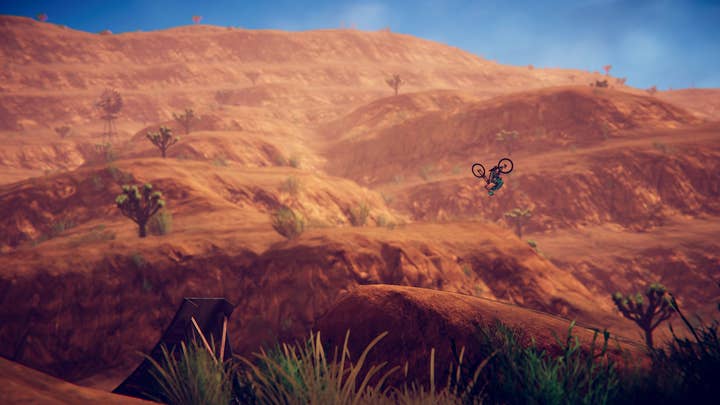Indie devs want a publisher "who actually seems to give a shit"
Mike Rose on the value of data and the personal touch in his new indie label, No More Robots
A new indie publishing label has emerged. Yes, another one.
The latest contender is No More Robots, a start-up primarily operated by one man: Mike Rose, whose ambition to run his own publishing business began while working for another notable indie publisher, TinyBuild. However, it was only after a short stint at UK publisher Ripstone that he felt ready to kick off his new venture.
Rose has secured investment from former IGF chairperson Simon Carless and video game legal expert Jas Purewal. The former is offering advice on publishing strategy, while the latter is assisting Rose with the business aspects of his new venture.

With a name like No More Robots, Rose's firm sounds more like an indie developer than a publishing label, but he tells GamesIndustry.biz that the moniker was carefully chosen to immediately convey what makes his firm stand out from all the others.
"The official reason for the name is that I hear from a lot of developers that when they work with publishers, it's not a very personal relationship," he says. "They get signed up and then they're part of a machine, getting churned through. Maybe they don't even hear from the publisher again until launch.
"I want to put across that when someone works with me, they're never going to be able to get me off their back. I'm going to be there all the time, consistently talking to them. With some of the devs I'm already working with, that's already the case - I've gone to visit them in their studios, I'm having meetings with them on Skype all the time, and I'm consistently being a nuisance in their Slack channels."
Rose is announcing No More Robots alongside the publisher's first signing: Descenders, by Action Henk developer Rage Squid. Positioned as "Skate on a bike, with a little bit of Trials thrown in", the BMX game challenges players to cross a procedurally generated open world, performing tricks as they go.
"When someone works with me, they're never going to be able to get me off their back. I'm going to be there all the time, consistently talking to them"
The game will launch digitally on PC later this year, with console versions to follow, and Rose hasn't ruled out the possibility of a retail release further down the line. He has other titles in the works, but is keen to concentrate on Descenders to begin with - if only to demonstrate the personal relationship he is promising.
"If I were to announce with three or more games, that would literally be the opposite of what I'm trying to put across," he says.
Of course, No More Robots won't be a rigidly monogamous publisher. While the number of games Rose plans to represent "goes back and forth", he is drawing on his past experience to ensure a sensible workload.
"When I was at TinyBuild, I found that doing all of this stuff for around about five or six games in a year seemed extremely manageable," he says. "And then each game had its own window. No developer felt like they were being shafted by another game that TinyBuild was working on.
"Because that balance seemed to work, that's what I'm aiming for. I'm starting with Descenders. There's a couple in the works but I'll talk about those another time, because I want each game to be as important as the others. The plan is, this time next year, I'll have released six games. It'll probably be more like three or four, because some games get delayed."

A practical plan, for sure, but with so many publishers big and small vying for indies' attention, what makes Rose think there's any room left for yet another label? Even he recognises how crowded the market has become.
"Whenever I see another indie publisher announced on GamesIndustry.biz, which feels like every week, I always look at them and - this might sound really harsh - but I can always immediately see why they're probably not going to work," he says. "I've been at two different publishers and seen what works and what doesn't."
"Some developers feel that the publisher isn't playing an important enough role. That they're basically just slapping their name on a game"
He stresses that putting effort into looking after indies and catering to their needs is crucial, and something that many publishers still need to improve upon. If a developer is working on its debut game, it may not fully understand the routes to market. Guidance through that process and advice on how to increase the game's chances for success will be the core of Rose's offering.
"Whenever I talk to devs who have been working with publishers, the No.1 thing they always feel is that the publisher isn't playing an important enough role," he says. "That they're basically just slapping their name on it and then just waiting until the game is ready.
"I'm an overly enthusiastic human being, and I found that it's one of my biggest pro points. When people talk to me about stuff, and especially when I'm working with them, I'm just extremely good at taking a developer who's been working on something for a while and getting them excited about it, helping them find angles about the game they hadn't thought about.
"Developers will be sick of hearing from me, because I won't leave them alone - but it turns out that's what a lot of developers want. They don't just want someone who signs them up and adds their game to a roster of titles. They want someone who actually seems to give a shit - and that's what I do."
Rose will need to offer more than an assertive personality, though. His professional experience - not only in publishing but also as a journalist - has given him a deep understanding of the games industry, and his appraisal of the landscape for indie games is succinct, to say the least.
"The market, especially on Steam, right now is fucked," he says. "There are just so many games.
"The market, especially on Steam, right now is fucked. There are just so many games."
"Since Christmas, I've been datamining the shit out of game sales [on Steam] - and particularly how much money games actually make. A lot of people on Steam focus on game sales, but you never see them focus on how much money games are actually making, which is actually more important.
"Even when I was [writing for] Gamasutra, I was doing this. I would always put out these number-heavy pieces, and that's the approach I'm taking here, making this an extremely data-driven thing. I've been mining the crap out of dozens of games, pulling all the information I believe is relevant - not just numbers - and working out what actually sells."
Rose offers the example of first-person horror games. He posits that "you could put out a shit first-person horror game and it will sell" because that genre is currently popular. Another finding from his research include the fact that most games are only making an average of £10,000 each in the first six months.

"That's horrible," he says. "It's not valuable at all. But when you dig into the data, you can start to work out why certain titles didn't sell. It creates a really vivid picture of why games are selling and why others are not.
"There's still a lot of luck involved. That's always been the case and applies to anything in life. But with the data I've pulled together now, I'm extremely confident than I can actually go ahead and use that to sign stuff that people are going to be interested in."
"With the data I've pulled together, I'm extremely confident than I can sign stuff people are going to be interested in"
All of this adds up to a challenging market for indies, even with the assistance of a devoted publisher like No More Robots. Even with his comprehensive analysis of Steam sales, Rose admits it's difficult to predict what will and won't become a hit. Instead, he urges developers to create games they're passionate about, not just ones they think will resonate with the current zeitgest.
"I was saying to [ID@Xbox boss] Chris Charla at GDC a couple of years ago that everything popular right now, everything people are making right now, they have no clue how well it's going to do in a year's time," he says. "Today, it's even worse. The games I'm looking at, if a developer plans to release it in a year I have no clue whether it's going to do well. There's just no way to know.
"My brother has been telling me his next game is going to take him five years. I just sigh and shake my head, because what are video games going to look like in five years' time. It's just too hard to tell."
This might seem a bleak outlook and a stark contrast to Rose's enthusiasm for his new venture, but he remains convinced that success is still possible - otherwise, why would he be actively looking for potential hits?
"There are a lot of things that surprise me," he says. "For example, one thing that surprised me from the data is it doesn't matter if you put a game out in Early Access any more. No one cares about the fact that it's early access. Even a year ago, people would wait until it's launched fully. But Early Access games now are doing just as well, if not better than other games.
"PlayerUnknown's Battlegrounds - that's Early Access, right? I didn't even know that until I went and checked. No one cares, which is why I'm encouraging a lot of developers to consider Early Access if their game is something that can be built upon and can gather a community around it. I mean, it worked for Minecraft, didn't it?"
